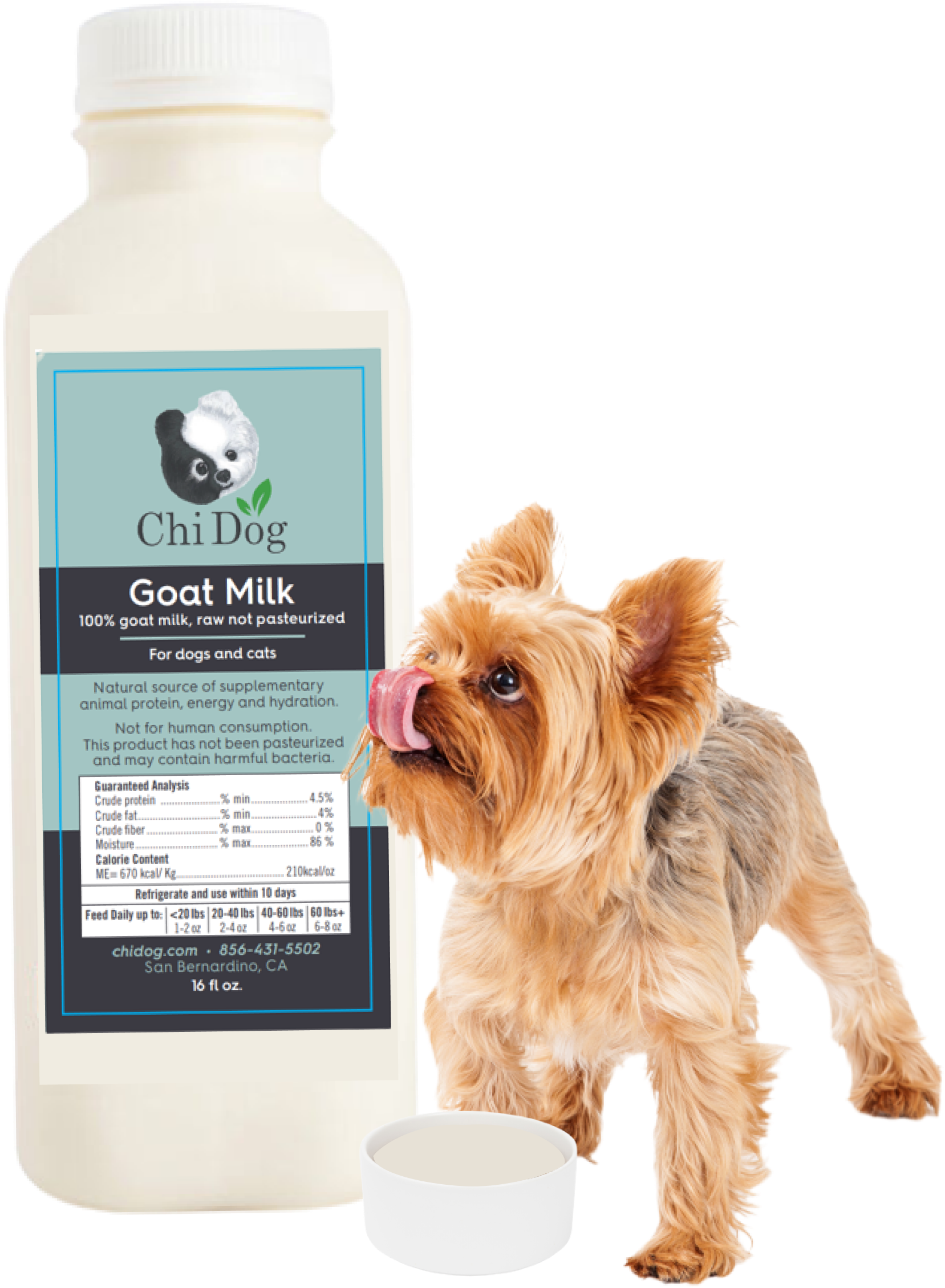
The Best Dog Food For Seizures: Switch To A Holistic Diet
If your dog is prone to seizures, altering their diet may be able to reduce the frequency of seizures or perhaps eliminate this issue. However, before we dive in and talk about the best dog food for seizures, let’s first explore this issue in depth, which can be frightening and upsetting for dog parents.
What Causes Seizures In Dogs?
Seizures in dogs can be caused by a number of underlying health issues, ranging from genetic predisposition to environmental factors. Here are some of the most common causes of seizures in dogs.
- Brain Tumors
Seizures can be a sign of a brain tumor, especially in older dogs. Tumors may cause pressure on certain areas of the brain, leading to neurological symptoms like seizures. Both benign and malignant tumors can cause seizures.
- Toxins & Poisoning
Exposure to toxic substances is a common cause of seizures in dogs. Common toxins include:
- Chocolate
- Xylitol (found in sugar-free products)
- Rodenticides (rat poison)
- Insecticides
- Certain plants, like sago palm or mushrooms
Ingesting any of these substances can lead to seizures and other serious health problems, requiring immediate veterinary attention.
- Liver Disease
When the liver is not functioning properly, toxins can build up in the bloodstream and affect the brain, causing seizures. Liver disease or portosystemic shunts (a condition where blood bypasses the liver) can lead to hepatic encephalopathy, which can trigger seizures. While medications may help, switching to specially formulated dog food for liver disease can be a good idea.
- Low Blood Sugar
Low blood sugar, or hypoglycemia, is commonly seen in puppies, small breeds and diabetic dogs. When blood sugar levels drop too low, it can cause seizures. Hypoglycemia can occur from poor diet, overexertion, or as a side effect of insulin treatment in diabetic dogs.
- Kidney Disease
The kidneys help filter waste products out of your dog’s blood. However, dogs with advanced kidney disease can suffer from a condition known as uremia. This is when there is a buildup of waste products in the blood.
Kidney disease can cause many symptoms, including neurological issues, such as seizures. Again, as with liver disease, medication may be needed, but switching to a dog food for kidney disease, can help improve kidney function and perhaps eliminate seizures.
- Brain Infections & Inflammation
Infections that affect the brain, such as distemper, rabies, or bacterial infections, can cause seizures. Additionally, inflammation of the brain or spinal cord (meningitis or encephalitis) due to autoimmune disorders, parasites, or viral infections can trigger seizures.
Head injuries from accidents or falls can cause seizures due to brain swelling, bleeding, or damage to brain tissue. Seizures may occur immediately after the trauma or develop later as scar tissue forms in the brain.
- Thyroid & Metabolic Disorders
Thyroid dysfunction, particularly hypothyroidism, can lead to seizures in some cases. Low thyroid hormone levels can cause neurological problems, including seizures. Other metabolic imbalances, such as electrolyte disturbances (low calcium or sodium), can also trigger seizures. For dogs with thyroid conditions or metabolic disorders such as Cushing’s disease or Addison’s disease, changes in diet can be extremely helpful.
- Heat Stroke
Overheating or heat stroke can cause seizures in dogs. This occurs when a dog’s body temperature becomes dangerously high, leading to brain swelling and neurological symptoms, including seizures. Heat stroke is a medical emergency and dog owners should always take their dog to the veterinarian if they exhibit any signs of heat stroke.
- Idiopathic Epilepsy
Idiopathic simply means that the precise cause of a disease is unknown, and idiopathic epilepsy is one of the most common causes of seizures in dogs. Some breeds are more predisposed to seizures due to genetic factors. For instance, breeds like Boxers, Collies, Labrador Retrievers, and Border Collies are more likely to develop idiopathic epilepsy or other seizure disorders, although this can occur in dogs of any breed or mixed breeds.
Doctors often prescribe seizure control drugs such as phenobarbital or potassium bromide, but whether or not your doctor prescribes medication, dogs with idiopathic canine epilepsy greatly benefit from switching to a dog food for seizures.
There’s been more than one study showing that dietary changes, such as switching to a ketogenic diet, can be helpful in reducing seizures in epileptic dogs. In general, with a ketogenic diet, we want to provide a dog with quality whole foods low in carbs and higher in fat and protein. The source of carbs typically is meant to come from fresh vegetables such as broccoli, carrots or leafy greens rather than a plethora of grains.
Unfortunately, most dog foods, especially kibble, contain cheap grain sources, such as corn and wheat and the protein sources are typically the worst cuts of meat. A fresh dog food, crafted from whole ingredients and without added sodium, sugar, fillers or chemicals is a much better option for all dogs, including those prone to seizures.
Switching To Holistic Dog Food
As holistic veterinarians, we have long followed the principles of Traditional Chinese Veterinary Medicine (TCVN), and that led us to create five unique diet plans. Each plan was designed to address specific health issues. So, whether you need a dog food for seizures, a dog food for a sensitive stomach or perhaps a dog food for pancreatitis, we have options for that and much more.
Of our five diets, we typically suggest the Wood Diet for dogs with idiopathic seizure disorders. This is a low carb dog food that contains two healthy protein sources – lean ground white breast chicken meat and chicken eggs. We also add healthy carbs including carrots, Chinese eggplant, broccoli and brown rice.
The Wood Diet also is recommended for dogs that need liver support or dogs with ligament injuries. Additionally, if you’ve been searching for a sensitive stomach dog food or have a highly picky eater, the Wood Diet can be a great match. It’s also recommended for puppies and provides complete nutritional support for their growing bodies.
While our Wood Diet is recommended as a dog food for seizures, if your dog is allergic to any of the ingredients or you have additional health concerns (pancreatitis, kidney issues, diabetes, etc.), please get in touch with us to talk about which diet might be the best fit for your dog’s unique nutritional needs. As veterinarians, we are committed to helping our clients find the best sources of nutrition for their dogs so that they can thrive and enjoy their lives to the fullest.
With a ketogenic diet, controlling carbs is important, and all of our diets are low in carbohydrates and contain only nutritious, whole-food ingredients with no chemicals or preservatives. So, if your dog is having seizures, but you also need a diet for dogs with pancreatitis or diabetes, our other diet plans can help reduce symptoms from those health conditions and can provide a reduction in seizure frequency. Again, your veterinarian may recommend medication as well as making dietary changes.
What To Do When Your Dog Has A Seizure
Seizures can be terrifying to witness, but staying calm and taking the right steps is crucial. Here’s what you should do if your dog is having a seizure.
- Clear The Area
Move any objects, furniture, or hazards away from your dog that could cause injury. Keep them away from stairs, sharp objects, or anything that could pose a risk during the seizure. If possible, gently place them in a safe space where they can't hurt themselves.
- Avoid Your Dog’s Mouth
Contrary to popular belief, do not attempt to open your dog’s mouth or put your hands near it. Dogs cannot swallow their tongues, but during a seizure, they may unintentionally bite. Keep your hands clear of their head and mouth to avoid injury.
Additionally, do not try to hold your dog down or restrict their movement during a seizure. This could increase the risk of injury for both you and your dog. Instead, let the seizure run its course while ensuring their environment is safe.
- Take Some Notes
This can be difficult, especially if this is the first time your dog has had a seizure, but take note of important details to share with your vet, such as:
- The length of the seizure
- What your dog was doing before it happened
- Any unusual behavior leading up to the seizure
- How your dog behaved after the seizure
This information will help the vet assess potential causes and determine the best course of treatment. As a side note, most seizures last about 30 seconds to two minutes. If your dog’s seizure lasts longer than five minutes or if your dog has multiple seizures in a short time (known as cluster seizures) this is a medical emergency and requires immediate veterinary attention.
- Comfort Your Dog As They Recover
After the seizure, your dog may be disoriented, confused, or restless (walking in circles, etc). This is called the post-ictal phase. Comfort them with a soft voice and gentle touch once they start to regain consciousness. Offer water if they seem interested, but do not force them to drink.
In some cases, providing a tiny bit of all-natural vanilla ice cream or a tiny bit of honey can help raise your dog’s blood sugar after a seizure. After ingesting this, you should provide a small bit of protein, such as some chicken breast or perhaps a spoonful of cottage cheese or perhaps some goat milk. This can help stabilize the blood sugar and make recovery a bit easier.
- Contact Your Veterinarian
While longer seizures require immediate attention, be sure to contact your doctor after any type of seizure. Your vet will conduct a variety of tests, such as blood work or an MRI, to determine the cause of the seizure. If it’s idiopathic, seizure medication may be needed to help manage the condition.
Switch To A Dog For Seizures
We know that seizures can be unsettling, but with diet and medication, many dogs live happy, long lives and see a huge reduction in seizures. If you’ve been searching for the best dog food for seizures, Chi Dog can be an excellent nutritious and holistic option to consider. We encourage you to click on the Get Started tab to determine which diet is the best fit for your sweet furry friend. Again, if you have any questions, do not hesitate to contact us at any time.


